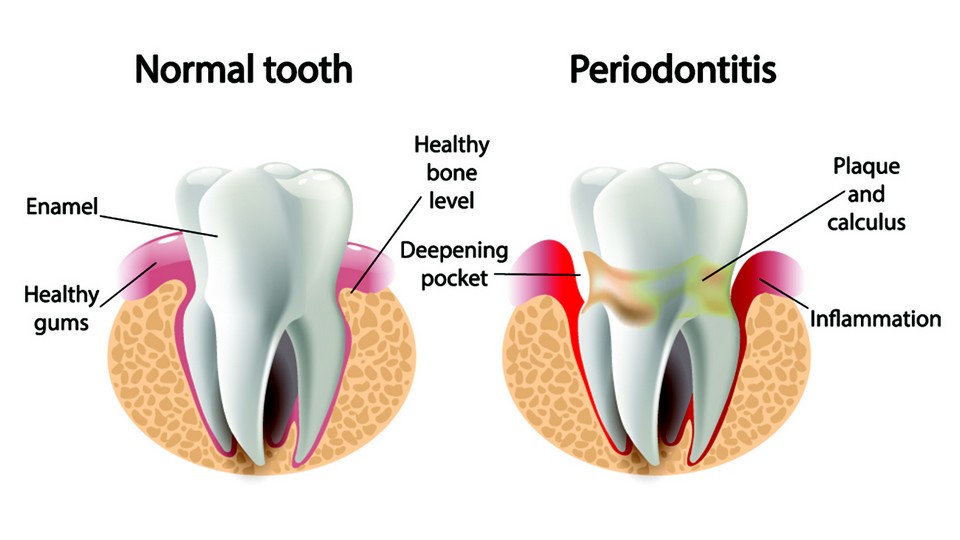What is periodontitis?
Early-stage periodontal disease (gingivitis) is seldom painful and causes relatively minor signs, such as red, swollen and bleeding gums. But untreated gingivitis can progress to periodontitis, a serious infection that destroys the soft tissue and bone that support your teeth, and eventually may cause tooth loss.
Signs and symptoms
In the earliest stages, periodontal disease causes few signs or symptoms, and you may not be aware of a problem until your gums become soft and bleed slightly when you brush your teeth. As the disease progresses, you may notice more-serious changes, including:
- Swollen, bright red or purple gums
- Gums that feel tender when touched
- Receding gums
- New spaces developing between your teeth
- Pus between your teeth and gums
- Persistent breath odour or a bad taste in your mouth
Causes
- Poor oral hygiene
- Smoking
- Heredity
- Medications
- Diabetes
- Hormonal changes
- Poor diet
How is gum disease treated?
The main goal of treatment is to control the infection. The number and types of treatment will vary, depending on the extent of the gum disease.
- Teeth cleaning
- Medications
- Surgical treatments
Periodontitis is common but largely preventable. It’s usually the result of poor oral hygiene. Brushing at least twice a day, flossing daily and getting regular dental check-ups can greatly improve your chances of successful treatment for periodontitis and can also reduce your chance of developing it.

